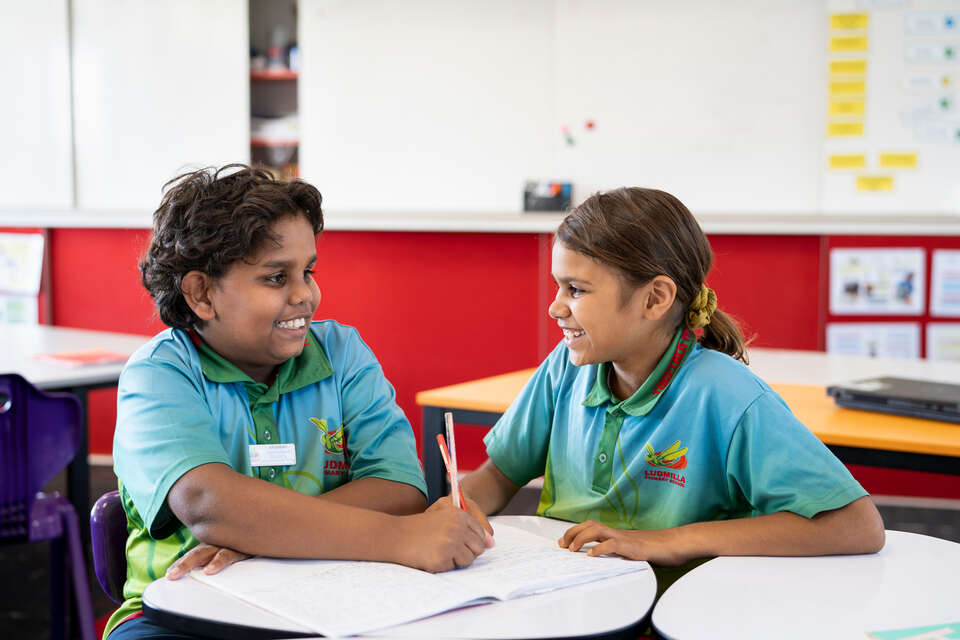
principal Carol Putica.
“It’s evidence-based and it’s Australian,” Carol says.
“Those two things were very attractive to me."
There are a myriad of wellbeing programs out there, but being able to access longitudinal research and supporting evidence summaries relevant to our context, and to understand what makes a difference, really gave us faith in Be You.
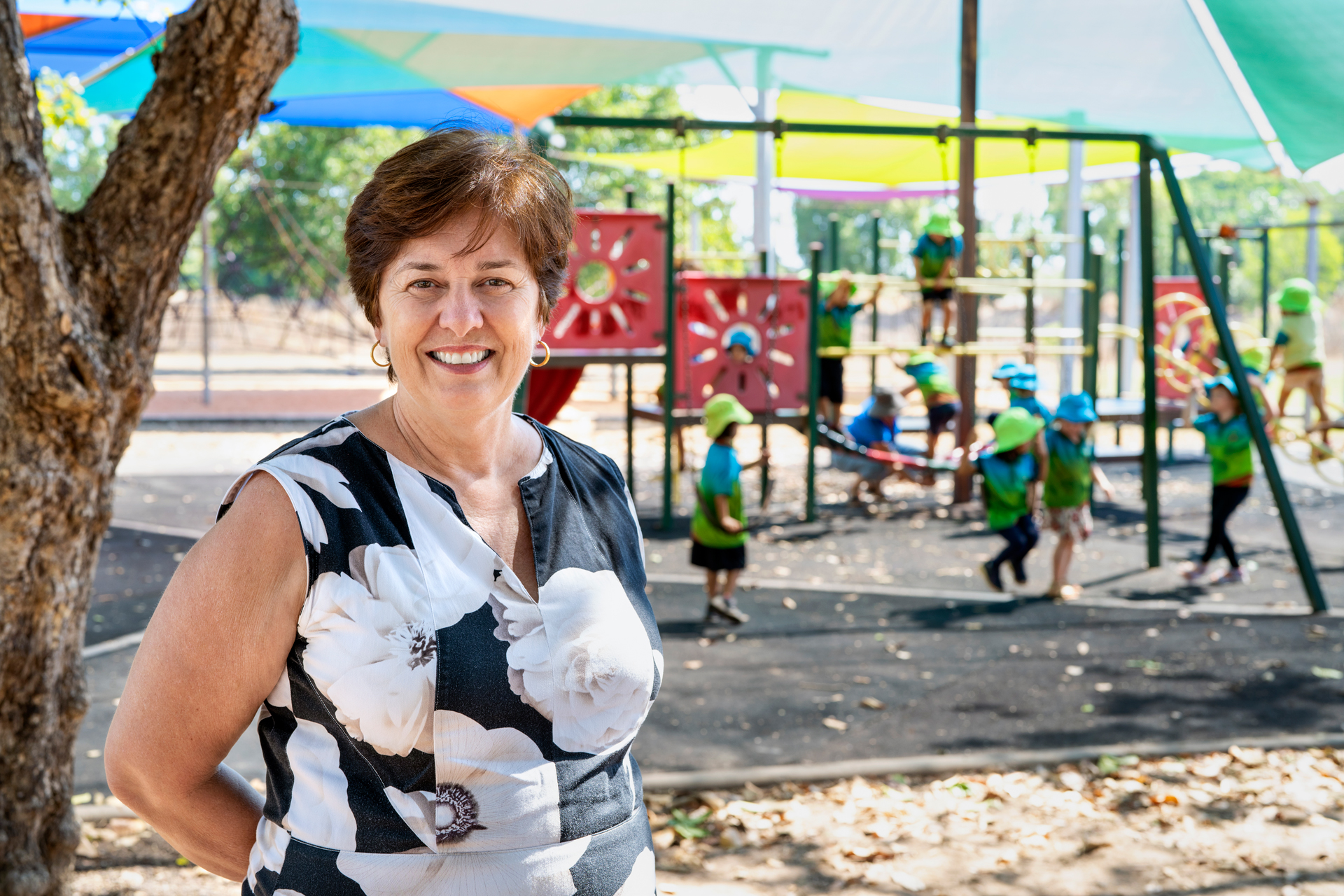
Ludmilla Primary School principal Carol Putica.
The other important thing about Be You, Carol explains is that it’s a framework, not a program or a product.
“It provides amazing resources and tools, but you make it your own, and we needed a framework that allowed us to do that, because at Ludmilla, our context is
unique and our challenges are unique," continued Carol.
"We needed flexibility within the framework to make it ours.”
A diverse learning community
Ludmilla Primary School is richly diverse, with about half of the students from Aboriginal or Torres Strait Islander communities. That’s another reason why Ludmilla chose Be You as its mental health initiative.
How do you support children to feel like they belong? Well, you just need a framework and that’s what Be You gave us.
“Through Be You, it’s been about making sure that a child’s cultural identity is visible in the school, taking regular opportunities to celebrate that culture, and helping them know they’re welcome to share that, too.
“Our next goal is not just to continue to support our Aboriginal students but to be even more reflective of them.
“Our Indigenous children not only often have English-as-a-second-language needs, they also have needs around their identity and their Indigeneity.”
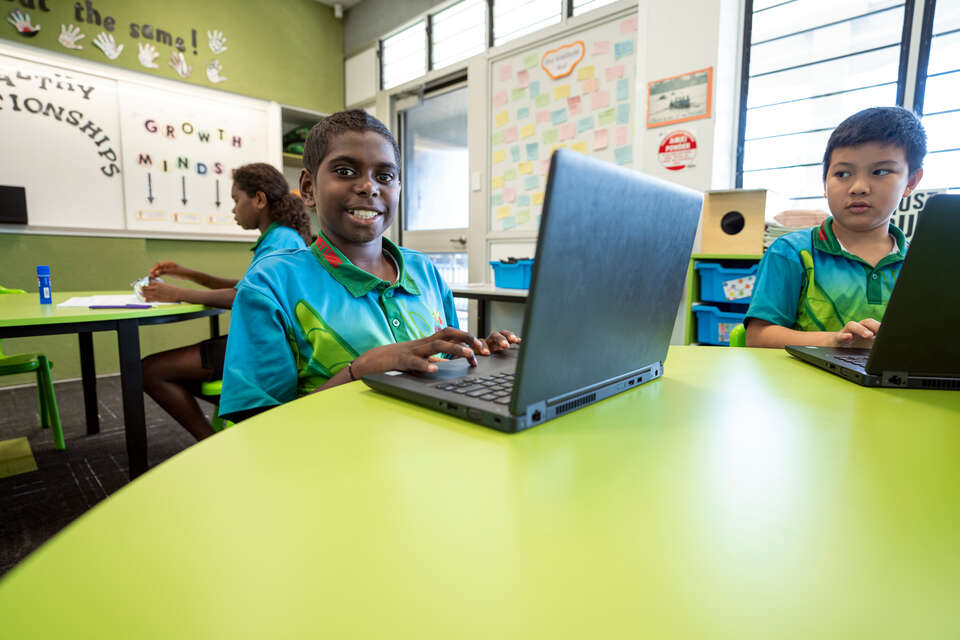
Be You is playing an integral role in helping build a mentally healthy learning community at Ludmilla Primary School.
The start of the school’s Be You journey
Aware that her school needed a strong emphasis on social and emotional learning, Carol started the search for a mental health and wellbeing framework.
In 2019, Ludmilla’s journey with Be You began.
Educators first completed all three modules of Be You’s Learning Resilience Professional Learning domain. Then, using the Be You Implementation and Reflection Tool, a newly formed Action Team identified a social and emotional learning program that was the ideal fit for the school.
“We look very critically and very formally at every single one of our partnerships,” says Carol.
“You have to be very selective and know what your school needs so you can be sure a partnership is actually filling a need rather than just making your school busier.
“Be You’s Implementation and Reflection Tool plays a vital role in helping us do that.”
Now every Monday, you’ll find each child who attends Ludmilla Primary School participating in a year-group-appropriate lesson designed to develop both their social and emotional learning skills.
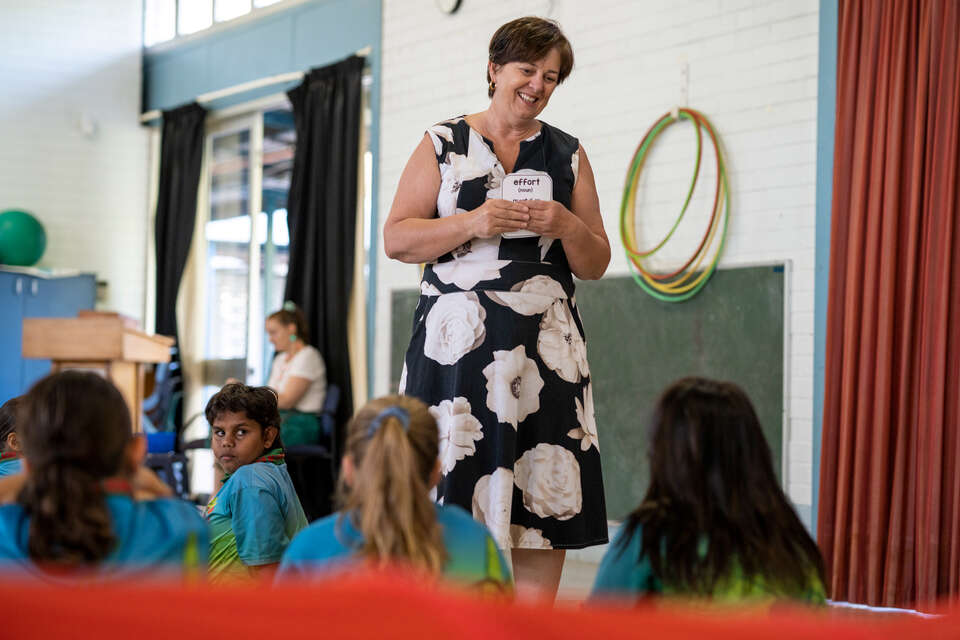
Carol talks to children at school assembly.
Social and emotional learning at Ludmilla
Carol regularly uses Be You’s suite of social and emotional learning Fact Sheets to help her staff learn and understand why supporting the mental health of children and young people is so important.
“We find these Fact Sheets so useful when we meet with families because they sensitively unpack issues that are often the source of difficult conversations with parents,” she continues.
“I also use them as a regular part of our school newsletter, by including a small portion of a Fact Sheet and links for further information. In fact, our newsletter always has a regular Be You feature.”
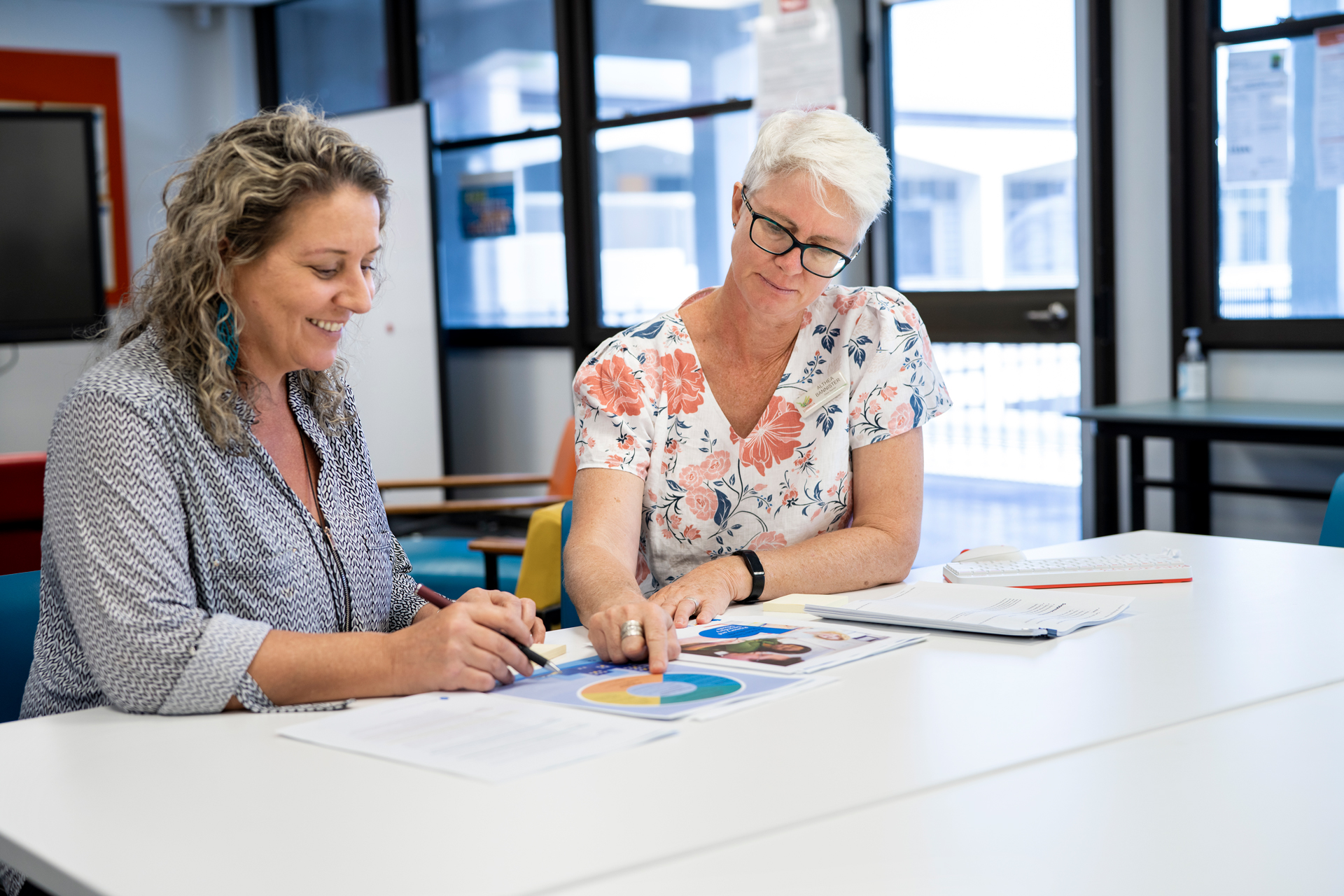
Be You Action Team Members, Althea Bannister and senior teacher Danielle Ford, using the Be You Professional Learning.
Noticing the early signs of mental health issues
With the Be You content framework providing leaders and educators with five Professional Learning domains, Carol and her team are currently working on Provide, the final module of the Early Support domain, having already completed Notice and Inquire.Carol points back to Ludmilla’s unique circumstances and challenges to explain the motivation for prioritising Early Support alongside Learning Resilience.
“We’ve always known we needed a strong emphasis on social and emotional learning,” said Carol.
“For so many reasons, the earlier you identify a need and respond with support, the better the result.”
Carol says that a big part of this for schools includes academic progress. If a child is experiencing poor mental health, it’s very hard for them to progress with their learning.
The Early Support modules of Notice, Inquire and Provide really give us the framework to jump in early to support the student and ensure they’re able to engage positively with all aspects of school life, including their learning.
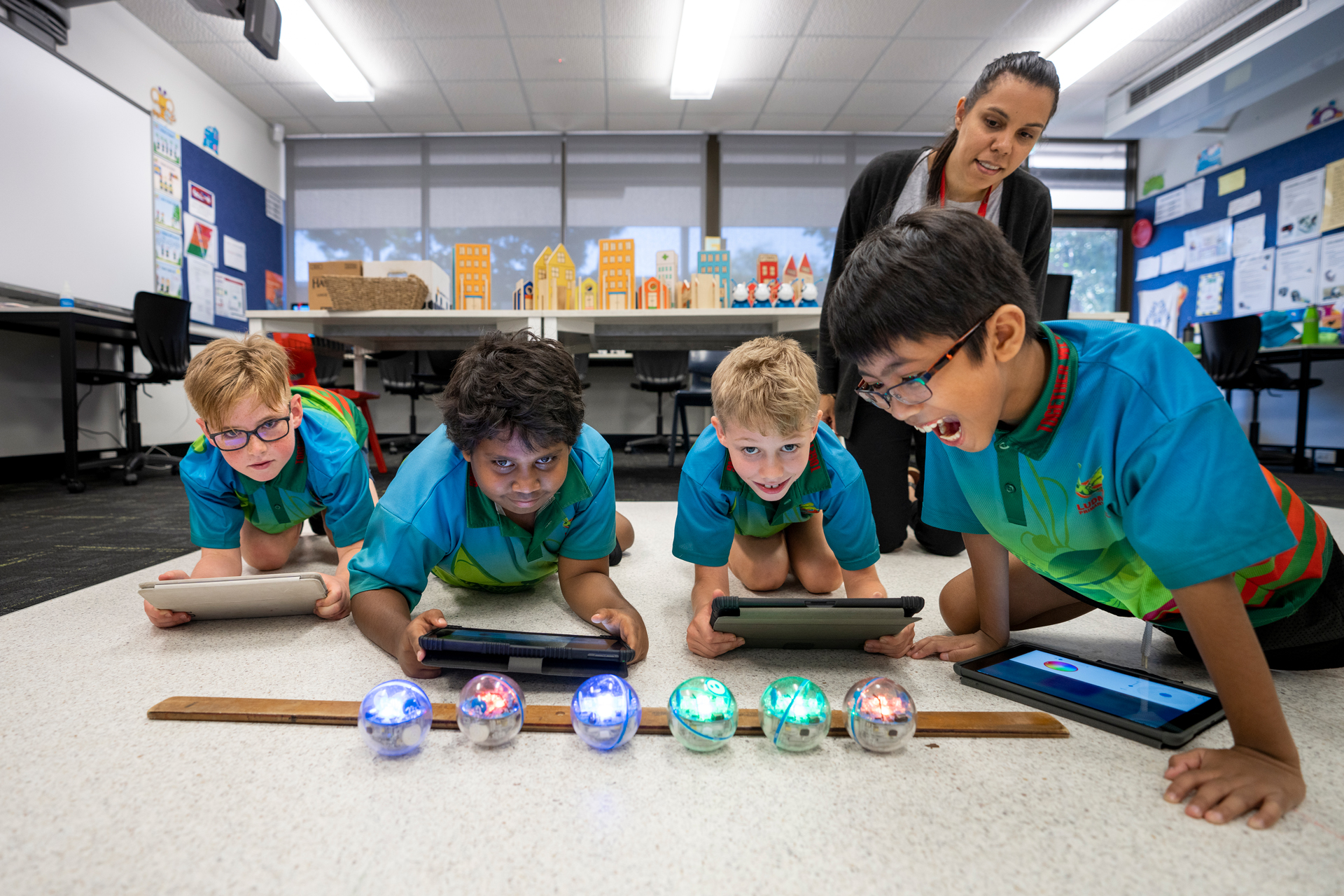
Children having fun in the school's robotics class.
Mental Health Continuum
In the school’s quest to implement the Early Support Professional Learning principles, they recently watched an In Focus webinar about the Be You Mental Health Continuum, which is designed to help educators understand the difference between mental health and mental health conditions.
Carol says the continuum, which describes the range between Flourishing and severely impacting everyday activities, has been invaluable for Ludmilla.
The school has used the continuum in conjunction with the Be You BELTS Observation Tool (BETLS is an acronym for behaviour, emotions, thoughts, learning and social relationships) to record what is happening and track students it has concerns for.
“The continuum shows that students aren’t static and it describes simply the indicators a student may show to let you know that they need additional support or that things may have changed for them,” Carol says.
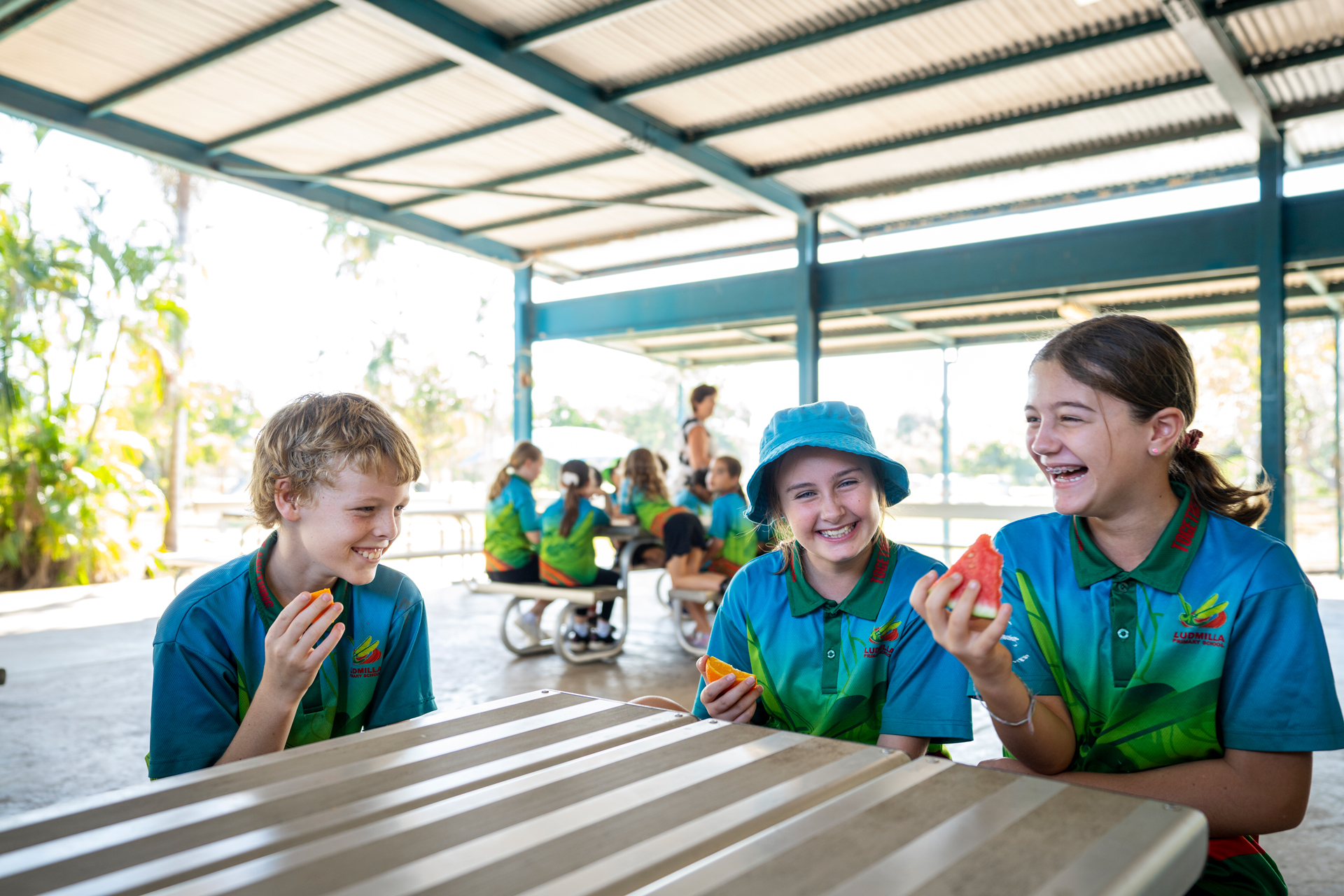
Children at Ludmilla Primary School enjoy a fruit snack at the start of the day.
Being strategic with Be You
Having completed Learning Resilience, and close to completing Early Support Professional Learning modules, Ludmilla’s educators have also enjoyed Understand, the first module of the Mentally Healthy Communities domain.
“We only look at one or two areas in any one year,” says Carol.
“Because we’ve been doing Be You and, previously, KidsMatter for a number of years, for us it always starts with doing what I call an audit, using the Be You Implementation and Reflection Tool.
“It helps us see what’s happening in our school and allows us to both celebrate what we’re still doing well and then hone in on the elements that we perhaps haven’t given enough thought to and what we need to embed. From there, we write an Action Plan.”
The earlier you identify a need and respond, the better the result. If a child is struggling with poor mental health, it’s very hard for them to progress with their learning
Carol believes creating the plan is always a collaborative effort. Using the Be You Action Plan Template, it involves input from the school’s Be You Action Team and often, its Be You Consultant, too.
Be You Consultant support
Tara Schmidt is that Consultant and says this approach is not only strategic, it also feeds into Be You’s principles of continuous improvement and reflection.
“In many ways, it’s a cycle as learning never ends,” Tara says.
“You might circle back to an area because you’ve identified new priorities or opportunities or a new context that you want to work on.
“Carol and her team at Ludmilla use the Be You Implementation and Reflection Tool in a really considered strategic way, doing a proper needs analysis, setting priorities and then using Be You resources and other programs and services that fit.”
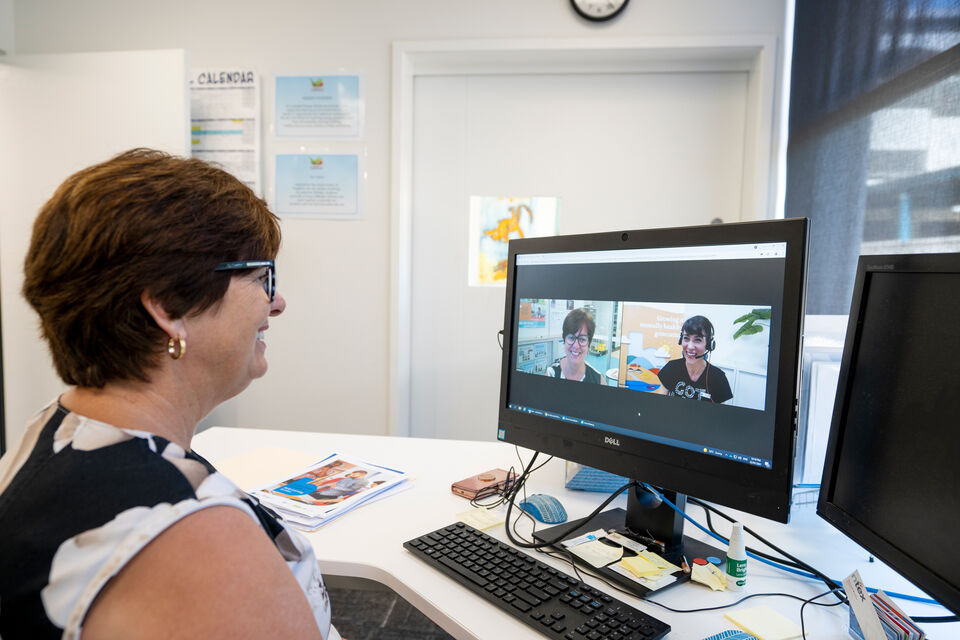
Carol on a Zoom call with Be You Consultant Tara Schmidt.
Be You working alongside other wellbeing programs
In recent times, Ludmilla’s strategic use of the Be You framework, and its tools, assisted Carol and other educators to identify the school's needs.
For Ludmilla there was a need to find a service that provided counselling to families across the school.
The service provide a counsellor who comes in once a week and works with any child the school feel could be supported by them free of charge.
The same service also works once a week in Ludmilla’s Early Education Precinct, which is for children aged from 0-5, running a cooking program for parents and caregivers.
Carol says the Be You framework not only helps Ludmilla to realise their goals around Early Support, it’s also supported her team team in building stronger relationships and engagement with parents and caregivers.
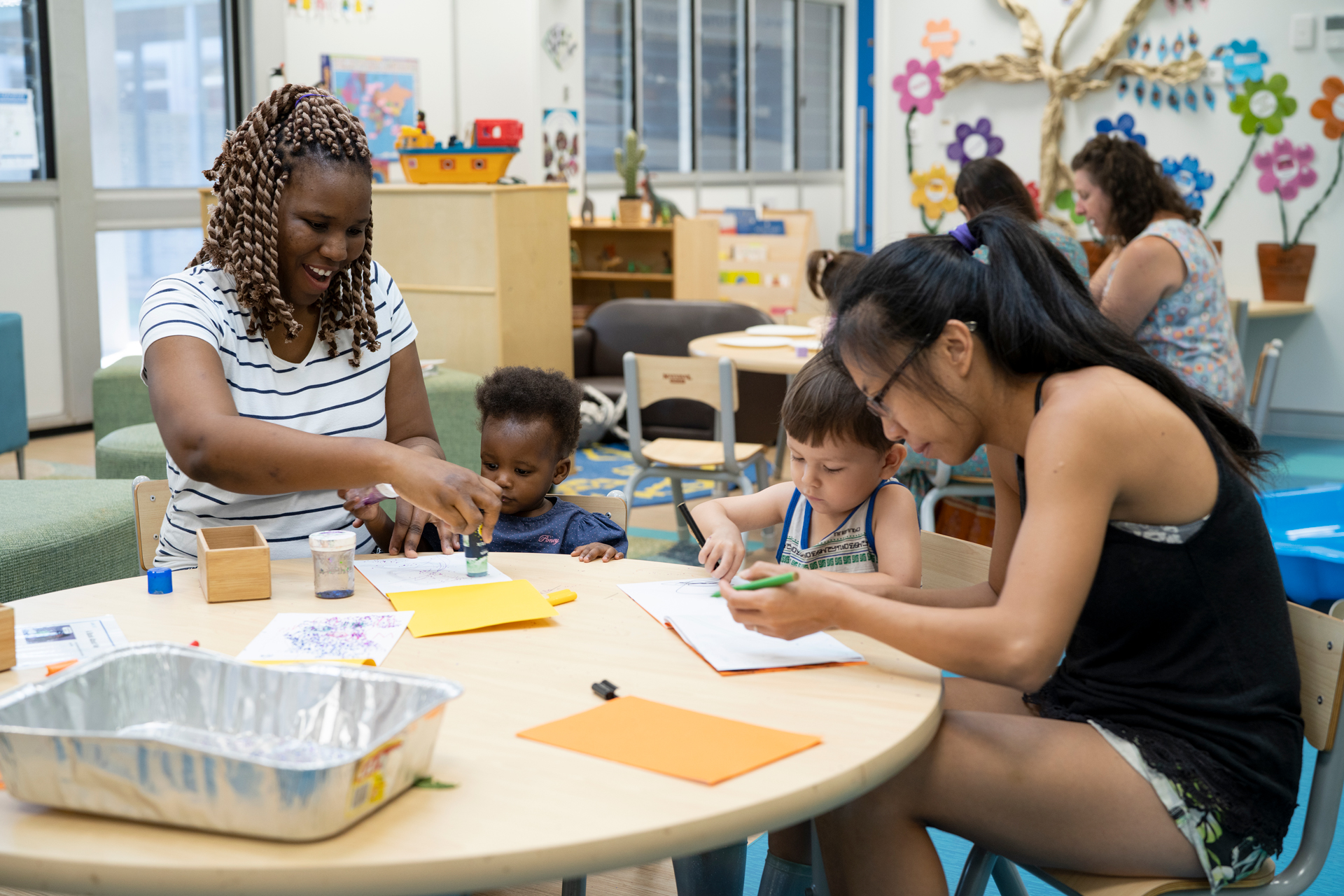
Ludmilla also has an early education precinct. This is a place for educators, children, families and the community to work together to provide rich, engaging learning opportunities for children and parents from birth to seven years.
Be You Surveys
The Be You Surveys are the most recent tool Carol and her team have started using. These are intended to give every member of a learning community the opportunity to share their voice.“As well as using these alongside the Implementation and Reflection Tool to help us determine the Professional Learning that we need, the Surveys give us the evidence that what we’re doing is having an impact, which
is so important,” she says.
Comparing conversations I have now with students to those I was having 10 years ago, the students have much more awareness and vocabulary around their emotions
“We’ve mainly used the educator surveys, and the feedback we’ve had from those surveys shows us that we’re out in front around supporting children, parents and our staff. Our school is a happy, healthy, supportive place to work and learn.”
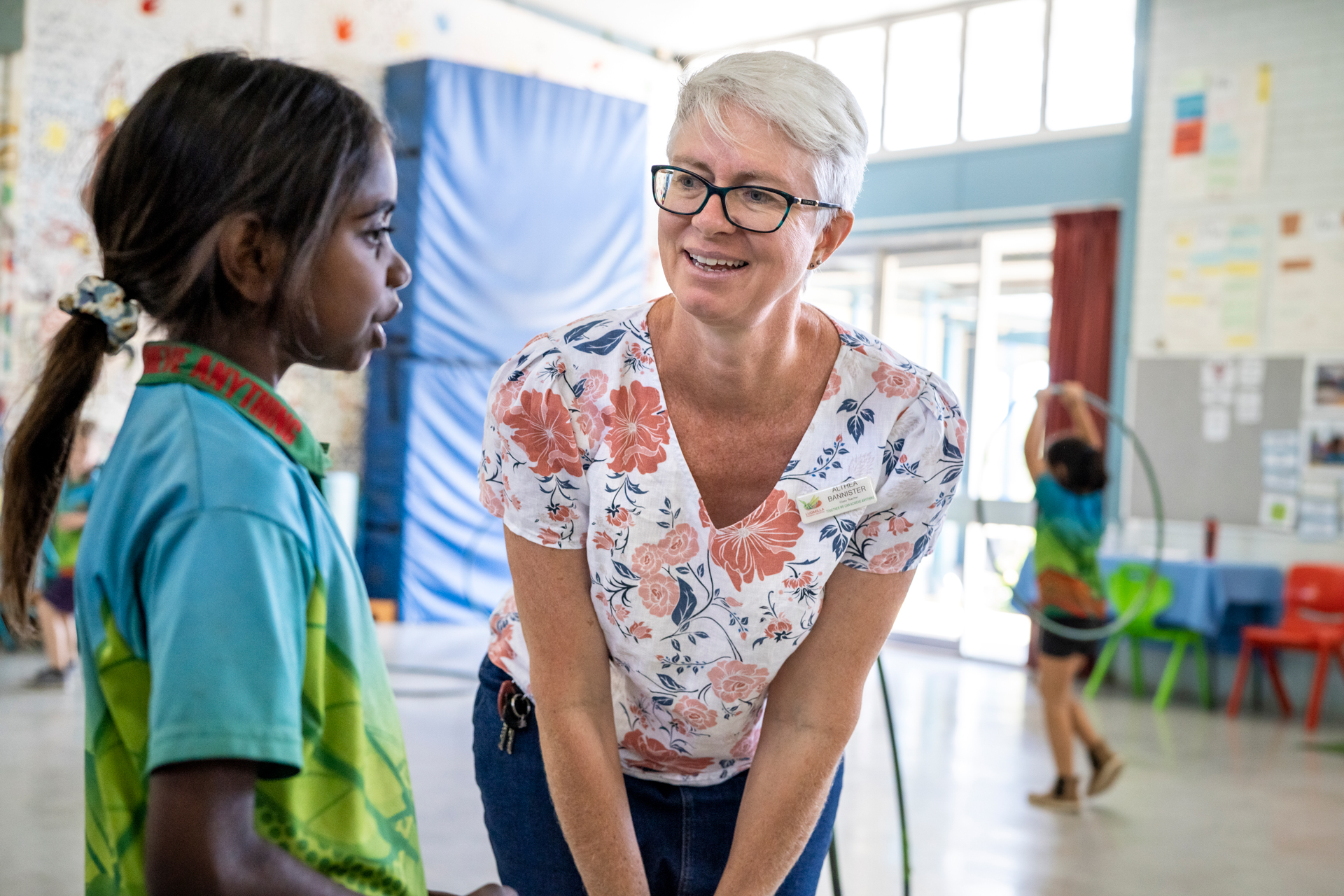
Be You Action Team Leader Althea Bannister talks to a student.
Creating a shared language with Be You
Althea Bannister, an educator at Ludmilla who is also part of the school’s Be You Action Team, sees the impact of the school having such a strong emphasis on social and emotional learning play out in her classroom every day. “When I compare the conversations I have now with students to those I was having 10 years ago, the students have much more awareness and even vocabulary around the emotions they’re feeling.
“Having such a strong focus on social and emotional learning at Ludmilla makes for happier, calmer classrooms.”
As well as integrating it into every aspect of teaching at Ludmilla – so that it has become part of the school’s classroom culture – the whole school also works on one particular aspect of social and emotional learning at the same time.
“That was something else we decided to do, using the Be You framework,” says Althea.
“Everyone from our students to our teachers and support staff, right down to the person who works in our canteen and our grounds person, is talking about the same thing at the same time, using the same language. Everyone is invested in it.”
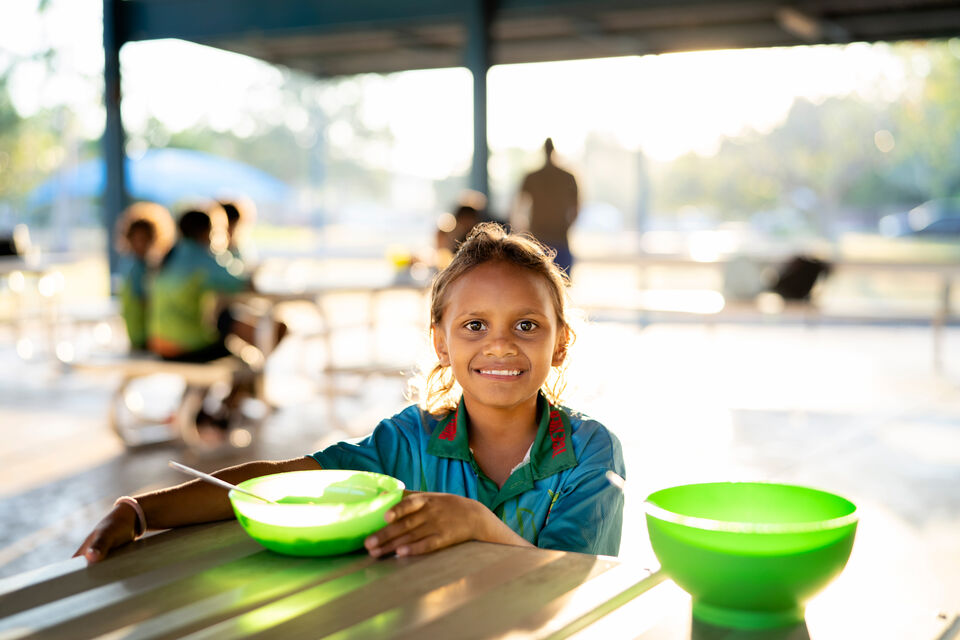
The start of the day at Ludmilla Primary School.
Wellbeing at the heart of everything
Something else the team at Ludmilla now benefits from as a knock-on effect of becoming a Be You school is an improved awareness and understanding of how prioritising and supporting mental health and wellbeing helps everyone – not just the school’s children.This is all thanks to Carol’s long-standing interest, investment and leadership in driving a whole of community approach.
“Wellbeing has always been a major passion of mine,” she says.
“For me, it was realising that children can’t learn unless there’s some basic needs being taken care of and even after those are taken care of, if they’re not experiencing positive wellbeing and you’re not addressing it, they won’t be able to engage with the learning the way you want them to.”
Wellbeing starts with us, as educators, because you can’t help anybody until you are in a robust, resilient place.
And Carol believes educator wellbeing is the linchpin between knowing that and making it happen.
“When we talk about wellbeing, we’re talking about everybody in the school,” she added.
“Wellbeing starts with us, as educators, because you can’t help anybody until you yourself are in a robust, resilient place. And I guess that’s just become even clearer for us as we’ve gone on the journey of supporting our students.”
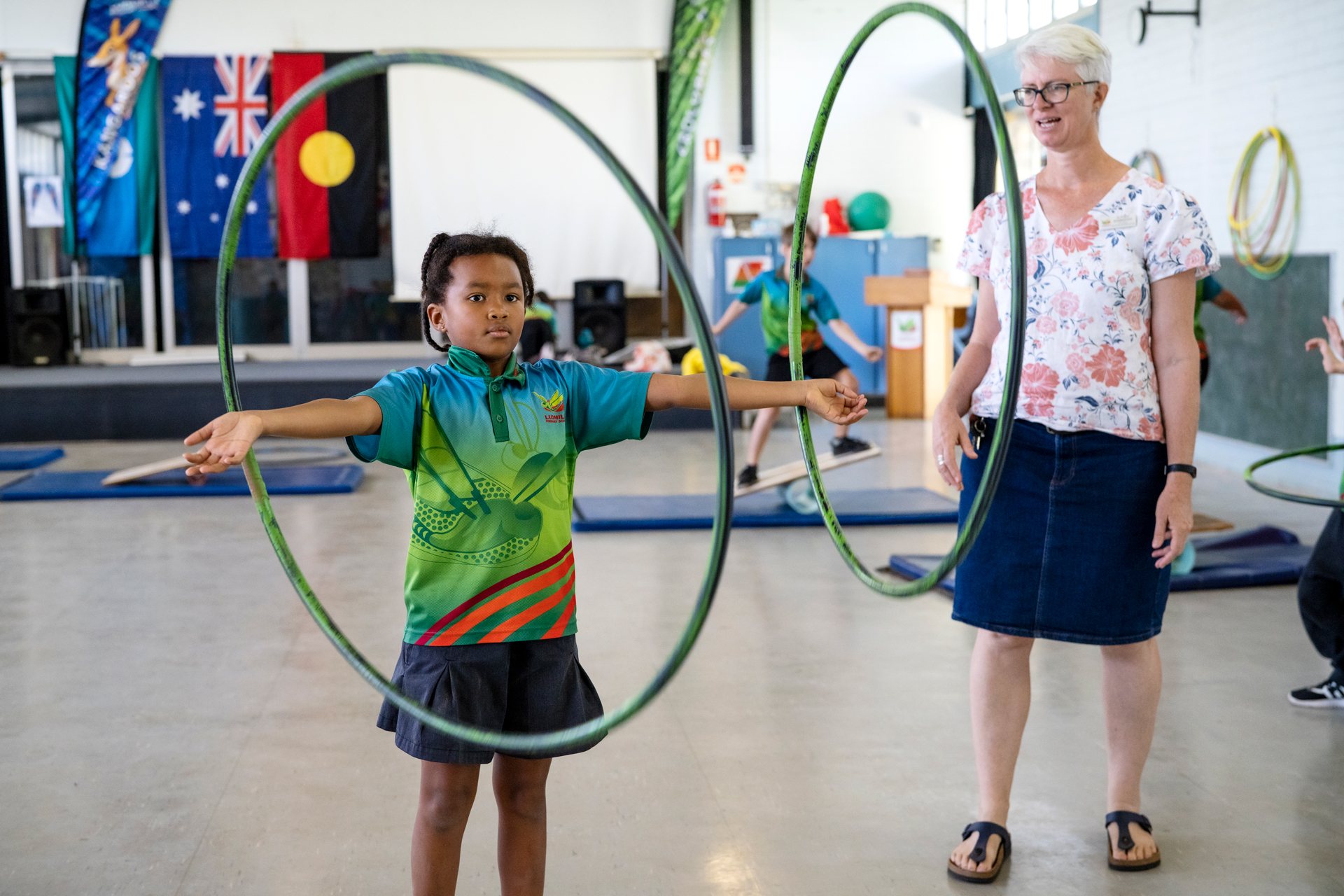
Children take part in a circus exercise session.
Looking towards the future
On top of the proof provided by the Be You Surveys, walking into Ludmilla Primary School and seeing all the smiles, joy and laughter is validation that Carol and her team have already achieved so much.
“It’s important to learn to read and write, but I also think life experience is important. I hope each and every one of our students leaves our school having had a happy time here," said Carol.
On the mission to realise that even further, Carol and her team have more Be You Professional Learning modules in their sights.
“Once we complete the final module of Early Support, we’ll move onto the two final modules of Mentally Healthy Communities.
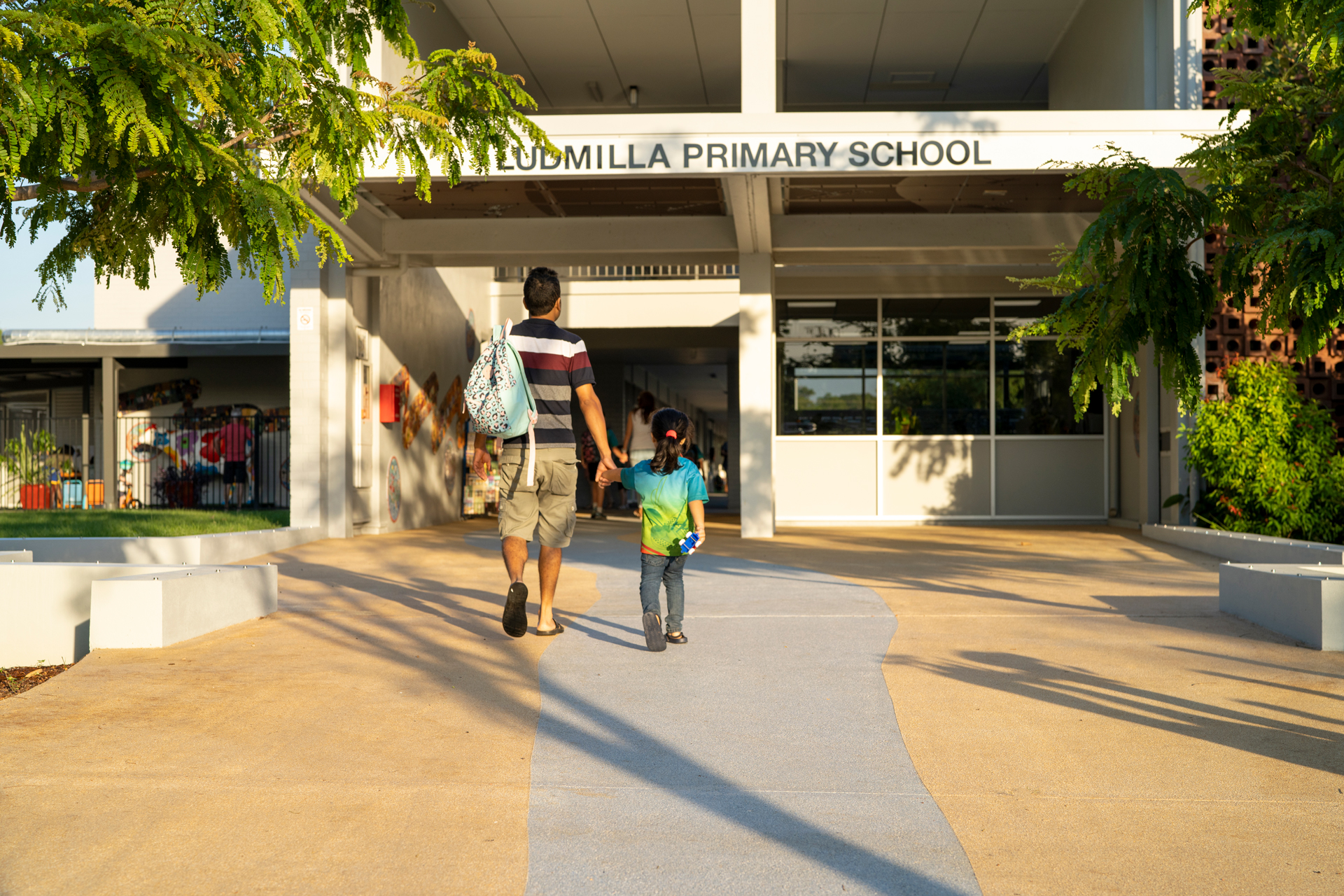
Ludmilla Primary School’s partnership with Be You has had multiple benefits for the whole school community.